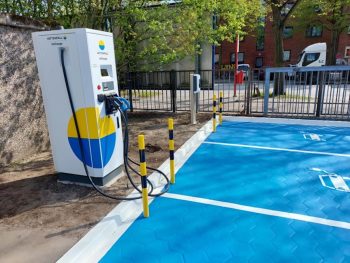Netto invests in 940 charge points across German stores
Grocery discounter Netto is to gain 940 charging points across more than 270 stores in Germany under a tie-up with Vattenfall.

The long-term project will establish around 470 EV charging stations, open not only to Netto customers, but also all other drivers of electric vehicles during Netto’s opening hours
The long-term project will establish around 470 EV charging stations, open not only to Netto customers, but also all other drivers of electric vehicles during Netto’s opening hours.
The project forms part of Vattenfall’s InCharge network, a strategic initiative designed to prepare the transport sector for a sustainable and electric future as a way to help turn the tide on climate change.
“From our point of view, the offer of fast charging stations is an important element to increase the attractiveness of our stores,” said Ingo Panknin, CEO of Netto Germany. “In addition, we are achieving another important milestone in our sustainable corporate policy. Together with Vattenfall, we set an example in the expansion of the infrastructure for e-mobility with almost 1,000 new charging points.”
Vattenfall specialises in the asset-adoption, ownership and management of high-voltage equipment via its Power-as-a-Service model, and will oversee the planning, construction and operation of all fast-charging infrastructure for the project. The energy expert will be given full electrical management responsibility for the charging points and any associated risks, while Netto will provide the customer parking spaces in front of its stores.
Vattenfall, one of the largest providers of fossil-free electricity in Europe, will also supply all Netto’s charging stations with electricity from renewable-only sources. Having recently released a white paper on delivering energy to EV hubs via Power-as-a-Service, the company is demonstrating its commitment to provide clean energy solutions for businesses that plan to go all-electric in the long-term.
Tomas Björnsson, vice president e-mobility at Vattenfall, said: “We are pleased to have found a partner in Netto who cares as much about the topic of e-mobility as we do. If the charging process can be easily and conveniently integrated into everyday life – especially when shopping at the supermarket, for example – clean mobility can be realised on a broad scale.”

